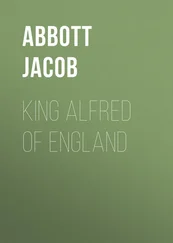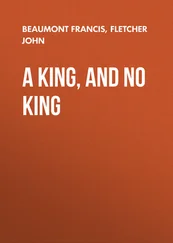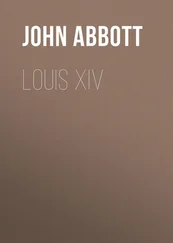John Abbott - King Philip
Здесь есть возможность читать онлайн «John Abbott - King Philip» — ознакомительный отрывок электронной книги совершенно бесплатно, а после прочтения отрывка купить полную версию. В некоторых случаях можно слушать аудио, скачать через торрент в формате fb2 и присутствует краткое содержание. ISBN: , Жанр: foreign_antique, foreign_prose, Историческая проза, на английском языке. Описание произведения, (предисловие) а так же отзывы посетителей доступны на портале библиотеки ЛибКат.
- Название:King Philip
- Автор:
- Жанр:
- Год:неизвестен
- ISBN:http://www.gutenberg.org/ebooks/29494
- Рейтинг книги:3 / 5. Голосов: 1
-
Избранное:Добавить в избранное
- Отзывы:
-
Ваша оценка:
- 60
- 1
- 2
- 3
- 4
- 5
King Philip: краткое содержание, описание и аннотация
Предлагаем к чтению аннотацию, описание, краткое содержание или предисловие (зависит от того, что написал сам автор книги «King Philip»). Если вы не нашли необходимую информацию о книге — напишите в комментариях, мы постараемся отыскать её.
King Philip — читать онлайн ознакомительный отрывок
Ниже представлен текст книги, разбитый по страницам. Система сохранения места последней прочитанной страницы, позволяет с удобством читать онлайн бесплатно книгу «King Philip», без необходимости каждый раз заново искать на чём Вы остановились. Поставьте закладку, и сможете в любой момент перейти на страницу, на которой закончили чтение.
Интервал:
Закладка:
Prosperous summer.
On the whole, the Pilgrims had enjoyed a very prosperous summer. They were eminently just and kind in their treatment of the Indians. In trading with them they obtained furs and many other articles, which contributed much to their comfort. Fish was abundant in the bay. Their corn grew luxuriantly, and their fields waved with a rich and golden harvest. With the autumnal weather came abundance of water-fowl, supplying them with delicious meat. Thus were they blessed with peace and plenty.
Rumors of war.
Various rumors had reached the colonists that several of the tribes of the Massachusetts Indians, so called, inhabiting the islands and main land at the northwestern extremity of Massachusetts Bay, were threatening hostilities. It was consequently decided to send an expedition to them, not to intimidate, but to conciliate with words of sincerity and deeds of kindness.
New expedition.
Evidences of the plague.
Justice of the Pilgrims.
At midnight, September the 18th, the tide then serving, a small party set sail, and during the day, with a gentle wind, made about sixty miles north. Not deeming it safe to land, they remained in their boat during the night, and the next morning landed under a cliff. Here they found some natives, who seemed to cower before them in terror. It appeared afterward that Squantum had told the natives that the English had a box in which they kept the plague, and that, if the Indians offended them, they would let the awful scourge loose. Every where the English saw evidences of the ravages of the pestilence to which we have so often referred. There were desolate villages and deserted corn-fields, and but a few hundred Indians wandering here and there where formerly there had been thousands. The kindness with which they treated the Indians, and the fairness with which they traded with them, won confidence. Squantum at one time suggested that, by way of punishment, and to teach the savages a lesson, they should by violence take away their furs, which were almost their only treasures. Our fathers nobly replied, "Were they ever so bad, we would not wrong them, or give them any just occasion against us. We shall pay no attention to their threatening words, but, if they attack us, we shall then punish them severely."
Explorations.
Appearance of the harbor.
The Pilgrims explored quite minutely this magnificent harbor, then solitary and fringed with rayless forests, now alive with commerce, and decorated with mansions of refinement and opulence. The long promontory, now crowded with the busy streets and thronged dwellings of Boston, was then a dense and silent wilderness, threaded with a few Indian trails. Along the shore several rude wigwams were scattered, the smoke curling from their fires from among the trees, with naked children playing around the birch canoes upon the beach.
Preparations for return.
In the evening of a serene day the moon rose brilliant on the harbor, illumining with almost celestial beauty the islands and the sea. Many of the islands were then crowned with forests; others were cleared smooth and verdant, but swept entirely clean of inhabitants by the dreadful plague. The Pilgrims, rejoicing in the rays of the autumnal moon, prepared to spread their sails. "Having well spent the day," they write, "we returned to the shallop, almost all the women accompanying us to trucke, who sold their coats from their backes, and tyed boughes about them, but with great shamefastness, for indeed they are more modest than some of our English women are. We promised them to come again to them, and they us to keep their skins.
The harbor.
"Within this bay the savages say there are two rivers, the one whereof we saw having a fair entrance, but we had no time to discover it. Better harbors for shipping can not be than here are. At the entrance of the bay are many rocks, and, in all likelihood, very good fishing ground. Having a light moon, we set sail at evening, and before next day noon got home, with a considerable quantity of beaver, and a good report of the place, wishing we had been seated there."
Friendly relations.
Arrival of emigrants from England.
Thus, by kindness, the natives of this region were won to friendship, and amicable relations were established. Before the close of this year another vessel arrived from England, bringing thirty-five persons to join the colony. Though these emigrants were poor, and, having consumed nearly all their food on a long voyage, were nearly starved, the lonely colonists received the acquisition with great joy. Houses were immediately built for their accommodation, and they were fed from the colony stores. Winter now again whitened the hills of Plymouth.
Declaration of war.
Canonicus.
Weakness of the Pilgrims.
Early in January, 1622, Canonicus, sovereign chief of the Narragansets, notwithstanding the alliance of the foregoing summer into which he had entered, dreading the encroachments of the white men, and particularly apprehensive of the strength which their friendship gave to his hereditary enemies, the Mohegans, sent to Governor Bradford a bundle of arrows tied up in the skin of a rattlesnake. Squantum was called to interpret the significance of such a gift. He said that it was the Indian mode of expressing hostility and of sending a declaration of war. This act shows an instinctive sense of honor in the barbarian chieftain which civilized men do not always imitate. Even the savages cherished ideas of chivalry which led them to scorn to strike an unsuspecting and defenseless foe. The friendly Indians around Plymouth assured the colonists that Canonicus was making great preparations for war; that he could bring five thousand warriors into the field; that he had sent spies to ascertain the condition of the English and their weakness; and that he had boasted that he could eat them all up at a mouthful. It is pleasant to record that our fathers had not provoked this hostility by any act of aggression. They had been thus far most eminently just and benevolent in all their intercourse with the natives. They were settled upon land to which Canonicus pretended no claim, and were on terms of cordial friendship with all the Indians around them. The Pilgrims at this time had not more than twenty men capable of bearing arms, and five thousand savages were clashing their weapons, and filling the forest with their war-whoops, preparing to attack them. Their peril was indeed great.
Council called.
Governor Bradford called a council of his most judicious men, and it was decided that, under these circumstances, any appearance of timidity would but embolden their enemies. The rattlesnake skin was accordingly returned filled with powder and bullets, and accompanied by a defiant message that, if Canonicus preferred war to peace, the colonists were ready at any moment to meet him, and that he would rue the day in which he converted friends into enemies.
Pickwickian challenge.
Barbarian as well as civilized blusterers can, when discretion prompts, creep out of an exceedingly small hole. Canonicus had no wish to meet a foe who was thus prompt for the encounter. He immediately sent to Governor Bradford the assurance, in Narraganset phrase, of his high consideration, and begged him to believe that the arrows and the snake skin were sent purely in a Pickwickian sense.
Preparations for defense.
Completion of the fortification.
The threatening aspect of affairs at this time led the colonists to surround their whole little village, including also the top of the hill, on the side of which it was situated, with a strong palisade, consisting of posts some twelve feet high firmly planted in the ground in contact with each other. It was an enormous labor to construct this fortification in the dead of winter. There were three entrance gates to the little town thus walled in, with bulwarks to defend them. Behind this rampart, with loop-holes through which the defenders could fire upon any approaching foe, the colonists felt quite secure. A large cannon was also mounted upon the summit of the hill, which would sweep all the approaches with ball and grape-shot. Sentinels were posted night and day, to guard against surprise, and their whole available force was divided into four companies, each with its commander, and its appointed place of rendezvous in case of an attack. The months of January and February were occupied in this work. Early in March the fortification was completed.
Читать дальшеИнтервал:
Закладка:
Похожие книги на «King Philip»
Представляем Вашему вниманию похожие книги на «King Philip» списком для выбора. Мы отобрали схожую по названию и смыслу литературу в надежде предоставить читателям больше вариантов отыскать новые, интересные, ещё непрочитанные произведения.
Обсуждение, отзывы о книге «King Philip» и просто собственные мнения читателей. Оставьте ваши комментарии, напишите, что Вы думаете о произведении, его смысле или главных героях. Укажите что конкретно понравилось, а что нет, и почему Вы так считаете.












